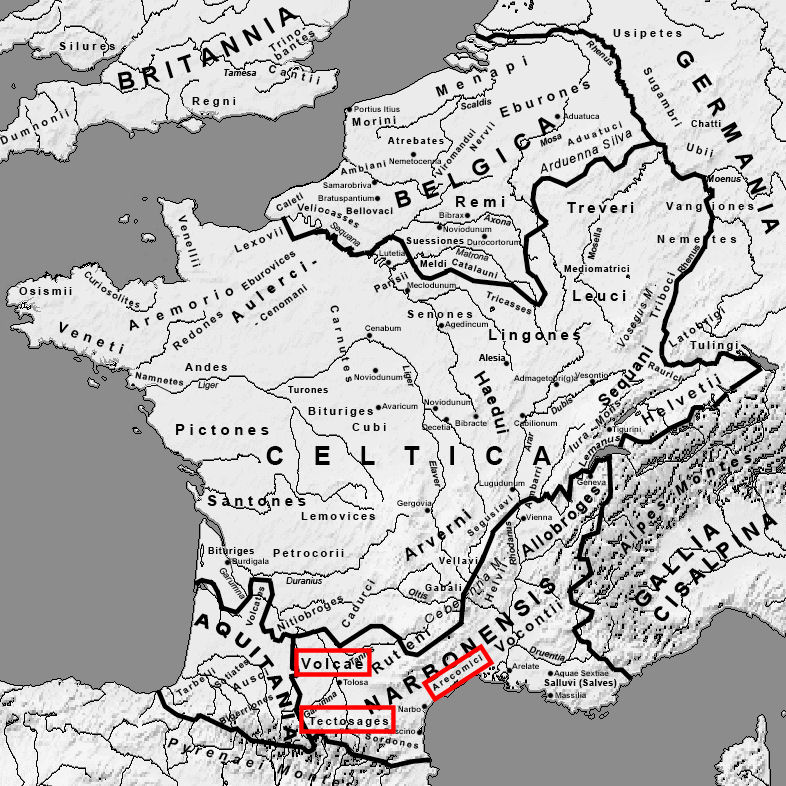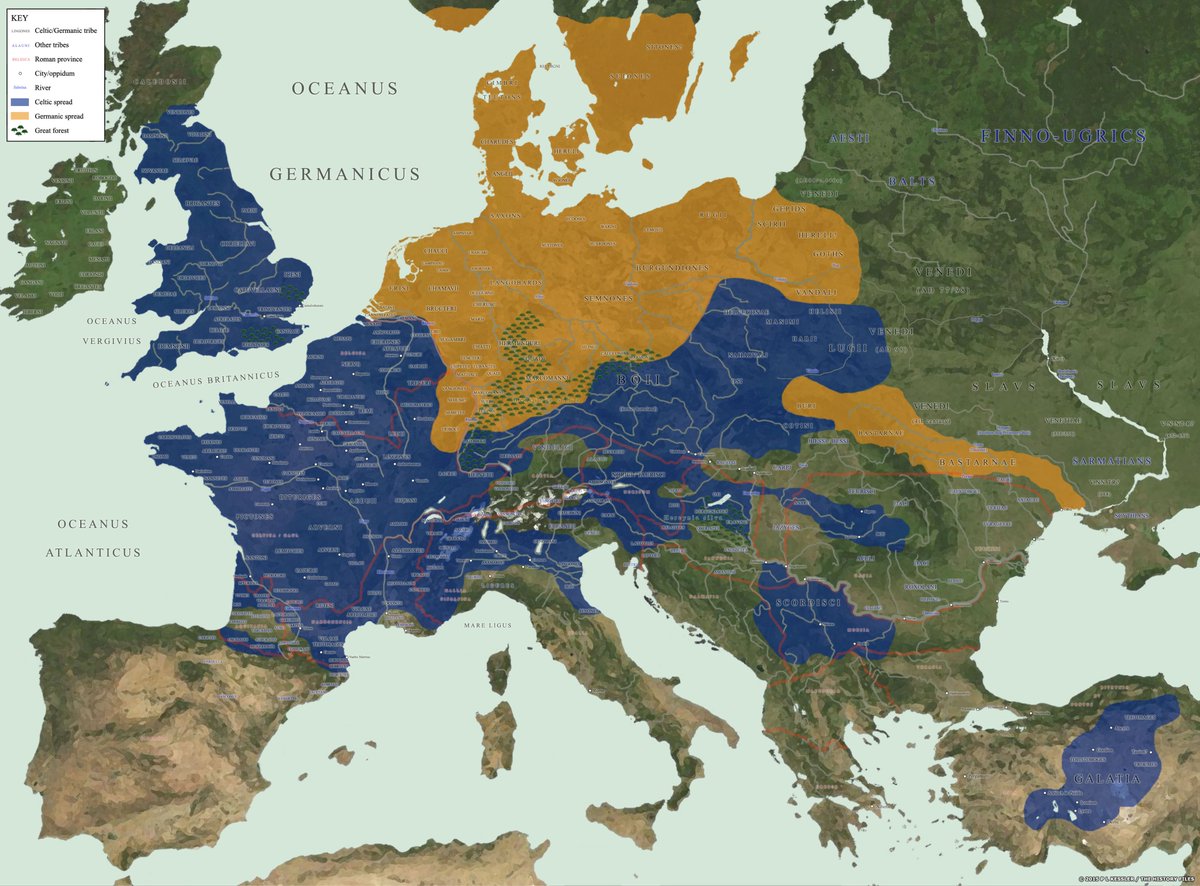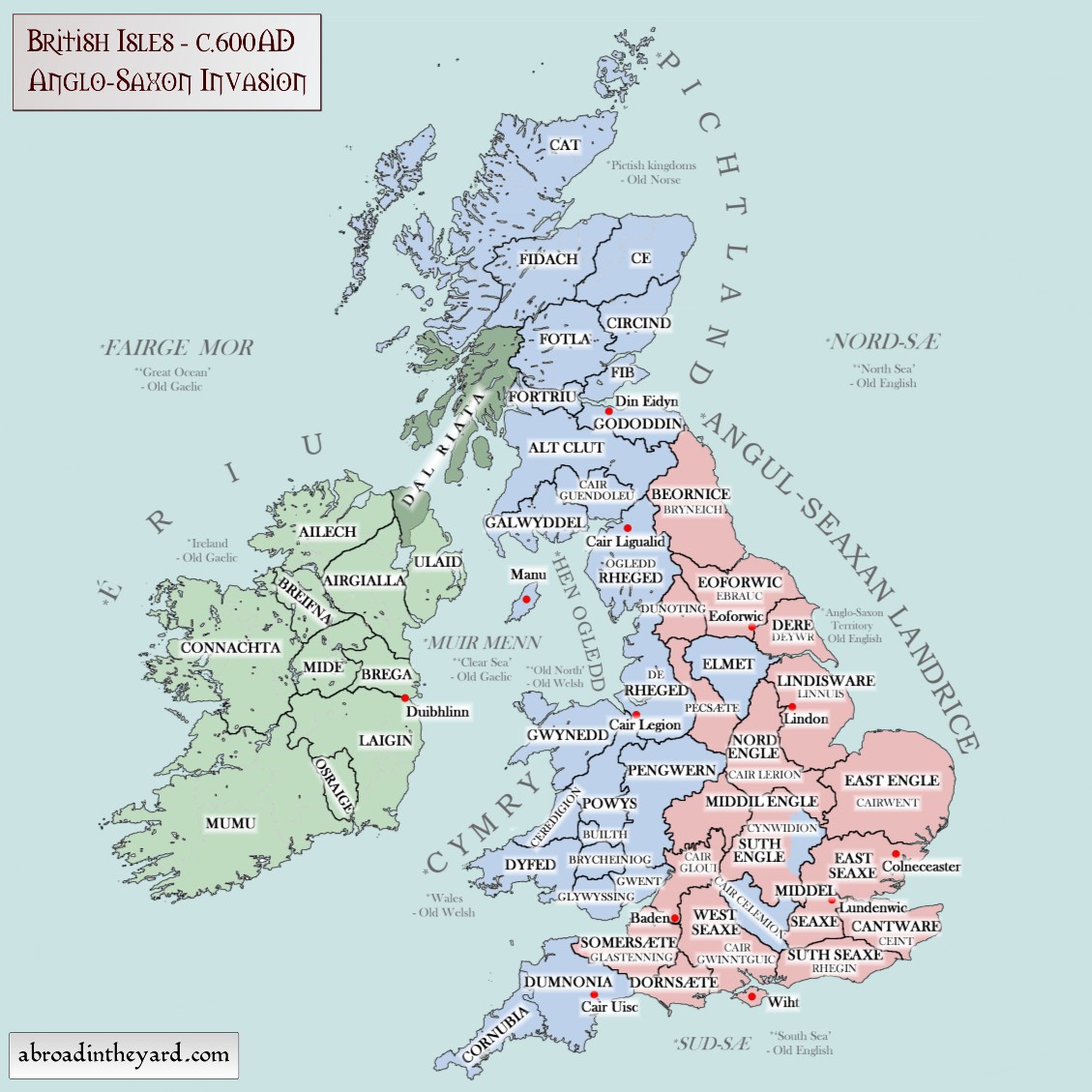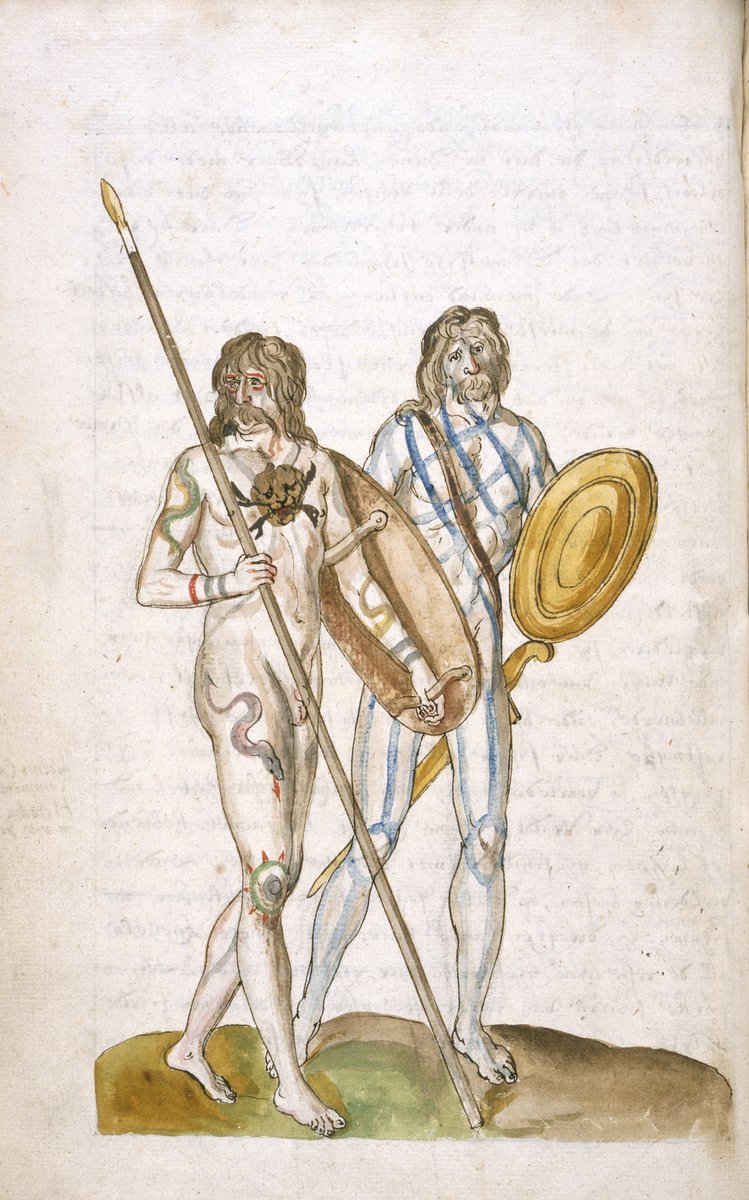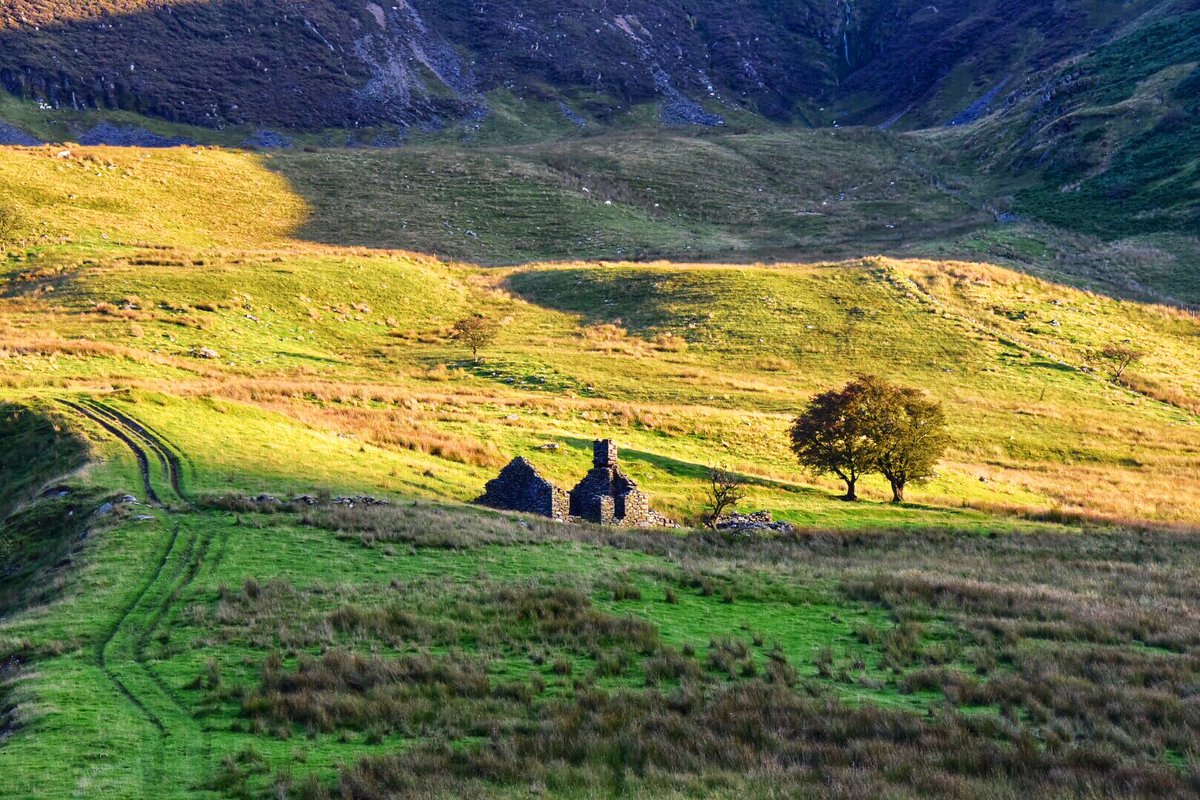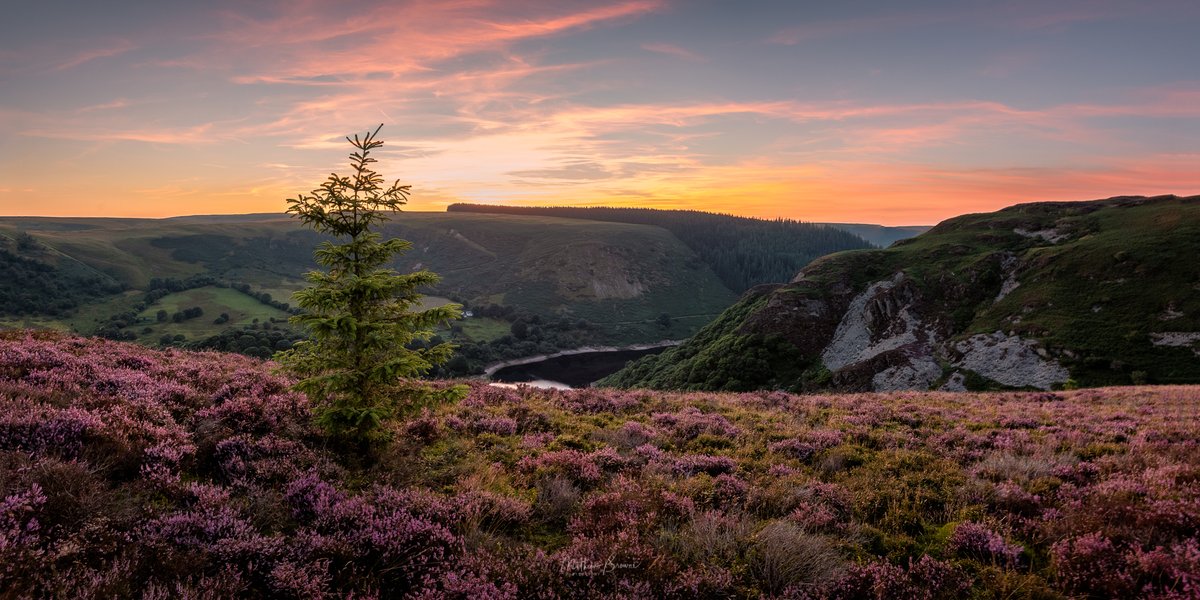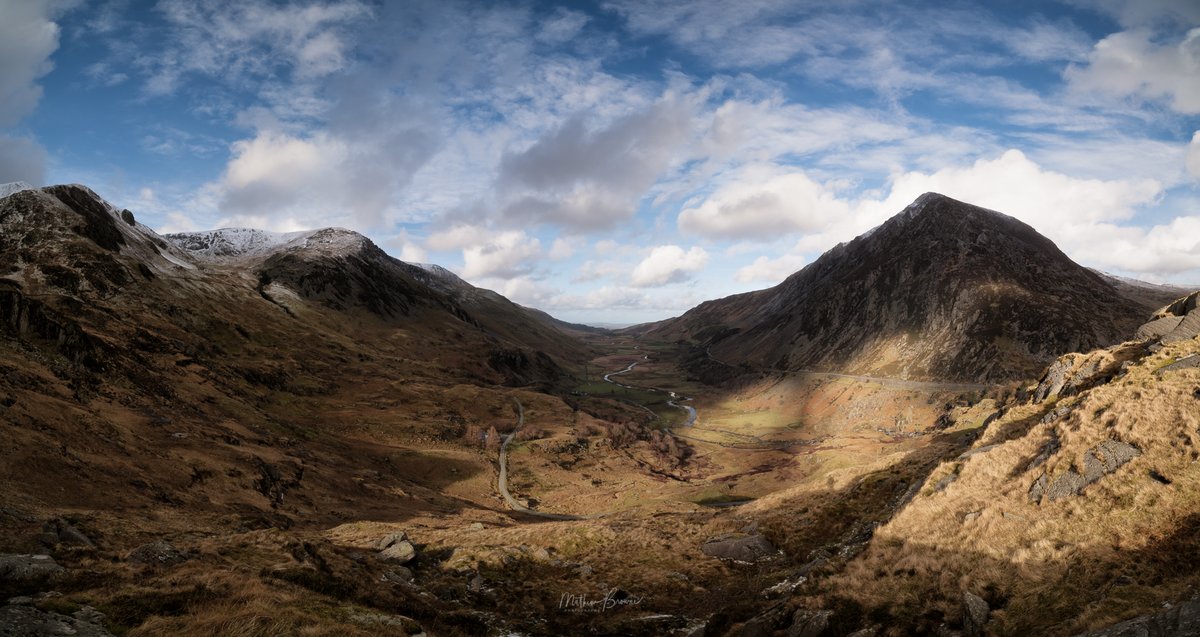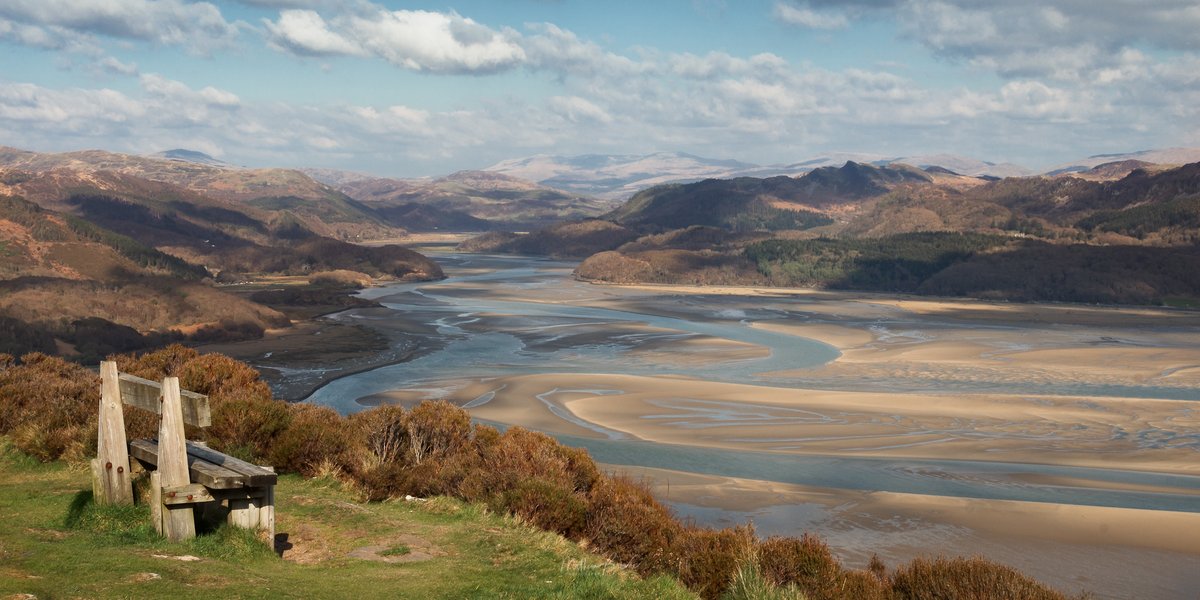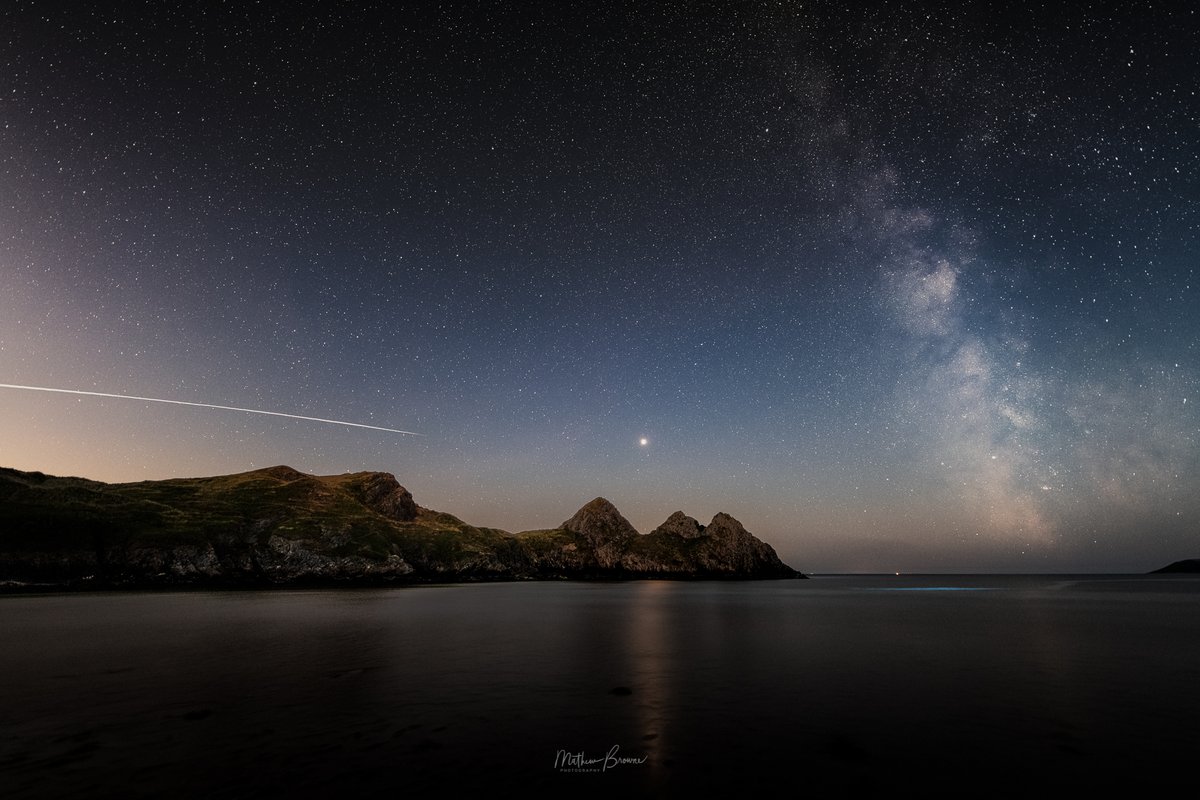The word "Wales" reveals the origins of Britain, and a gnawing history of Anglo-Saxon oppression…
It was used by invading tribes to mean 'foreigners' or 'outsiders,' despite Brythonic peoples (latterly Welsh, Cornish, Cumbrian, Breton) being native to these isles.
THREAD
It was used by invading tribes to mean 'foreigners' or 'outsiders,' despite Brythonic peoples (latterly Welsh, Cornish, Cumbrian, Breton) being native to these isles.
THREAD

In 500 BC, Germanic tribes moved into northern Germany, attacking a powerful Celtic ethnic group they called 'Volcae.'
The Germanic tribes began using 'Volca' to describe foreigners.
As a Latin 'v' can be pronounced 'w' at the beginning of words, Volcae became "Walhaz."
The Germanic tribes began using 'Volca' to describe foreigners.
As a Latin 'v' can be pronounced 'w' at the beginning of words, Volcae became "Walhaz."
 A note on Volcae
A note on Volcae 
• Tribes existing c. 200 BC
• Fought the Greeks at Battle of Thermopylae, 279 BC
• Found in Gaul, Moravia, Iberian Peninsula, Anatolia
• "Volcae" related to Welsh: gwalch (hawk)
• Gaulish name Catuuolcus related to Welsh cadwalch (hero/battle-hawk)
"Walhaz" is seen in runic inscriptions on a 400-650 AD coin:
• Walhakurne (foreign corn)
Germanic documents contain variations:
• Walask; Walahisk; Walhisk (strange/foreign)
French speakers changed the w to g:
• Galeis; Galois; Gualeis
Gallois means "Welsh" in modern French
• Walhakurne (foreign corn)
Germanic documents contain variations:
• Walask; Walahisk; Walhisk (strange/foreign)
French speakers changed the w to g:
• Galeis; Galois; Gualeis
Gallois means "Welsh" in modern French
Germanic speakers generalised Walhaz first to all Celts, and later to all Romans and Romanised peoples.
And the word evolved…
• Old High German (750-1050 AD): Walh
• Middle High German (1050-1350): Walch
• Early New High German (1350-1650): Welsche
And the word evolved…
• Old High German (750-1050 AD): Walh
• Middle High German (1050-1350): Walch
• Early New High German (1350-1650): Welsche
The invading Anglo-Saxons pushed the Celts to the west of Britain, in what became an annexed land we now, somewhat ironically, call "Wales."
Worse still, Walha(z) took on the meaning not just of foreigner but of 'the other' in Old English, and even 'slave.'
Worse still, Walha(z) took on the meaning not just of foreigner but of 'the other' in Old English, and even 'slave.'
In Welsh, Wales is Cymru, while the Welsh are Cymry.
Both words (pronounced "kum-ree") are descendants of the Brythonic word Combrogi ("fellow countrymen").
Its Latinised form…
• Cambrian
• Cambric
• Cambria
… lives on today:
• Cambrian Mountains
• Cambrian Period
Both words (pronounced "kum-ree") are descendants of the Brythonic word Combrogi ("fellow countrymen").
Its Latinised form…
• Cambrian
• Cambric
• Cambria
… lives on today:
• Cambrian Mountains
• Cambrian Period
Wales' roots run as deep as our occupation of this island archipelago.
From Aberystwyth to 𝗔𝗯𝗲𝗿deen, Penmachno to 𝗣𝗲𝗻zance, Pontypridd to 𝗣𝗼𝗻𝘁efract, our linguistic legacy lives.
More
 https://theculturetrip.com/europe/united-kingdom/wales/articles/find-out-how-wales-got-its-name
https://theculturetrip.com/europe/united-kingdom/wales/articles/find-out-how-wales-got-its-name
 https://www.bbc.co.uk/wales/culture/sites/aboutwales/pages/history.shtml
https://www.bbc.co.uk/wales/culture/sites/aboutwales/pages/history.shtml
 https://www.walesonline.co.uk/lifestyle/fun-stuff/wales-called-wales-13728456
https://www.walesonline.co.uk/lifestyle/fun-stuff/wales-called-wales-13728456
From Aberystwyth to 𝗔𝗯𝗲𝗿deen, Penmachno to 𝗣𝗲𝗻zance, Pontypridd to 𝗣𝗼𝗻𝘁efract, our linguistic legacy lives.
More

 https://theculturetrip.com/europe/united-kingdom/wales/articles/find-out-how-wales-got-its-name
https://theculturetrip.com/europe/united-kingdom/wales/articles/find-out-how-wales-got-its-name https://www.bbc.co.uk/wales/culture/sites/aboutwales/pages/history.shtml
https://www.bbc.co.uk/wales/culture/sites/aboutwales/pages/history.shtml https://www.walesonline.co.uk/lifestyle/fun-stuff/wales-called-wales-13728456
https://www.walesonline.co.uk/lifestyle/fun-stuff/wales-called-wales-13728456
This thread is a mere stitch in the tapestry of hidden histories, myths and legends that make up the 220 million year-long "Secrets of Wales" collection.
Read it. Love it? Retweet it. http://bit.ly/SecretsOfWales
http://bit.ly/SecretsOfWales
Read it. Love it? Retweet it.
 http://bit.ly/SecretsOfWales
http://bit.ly/SecretsOfWales

 Read on Twitter
Read on Twitter